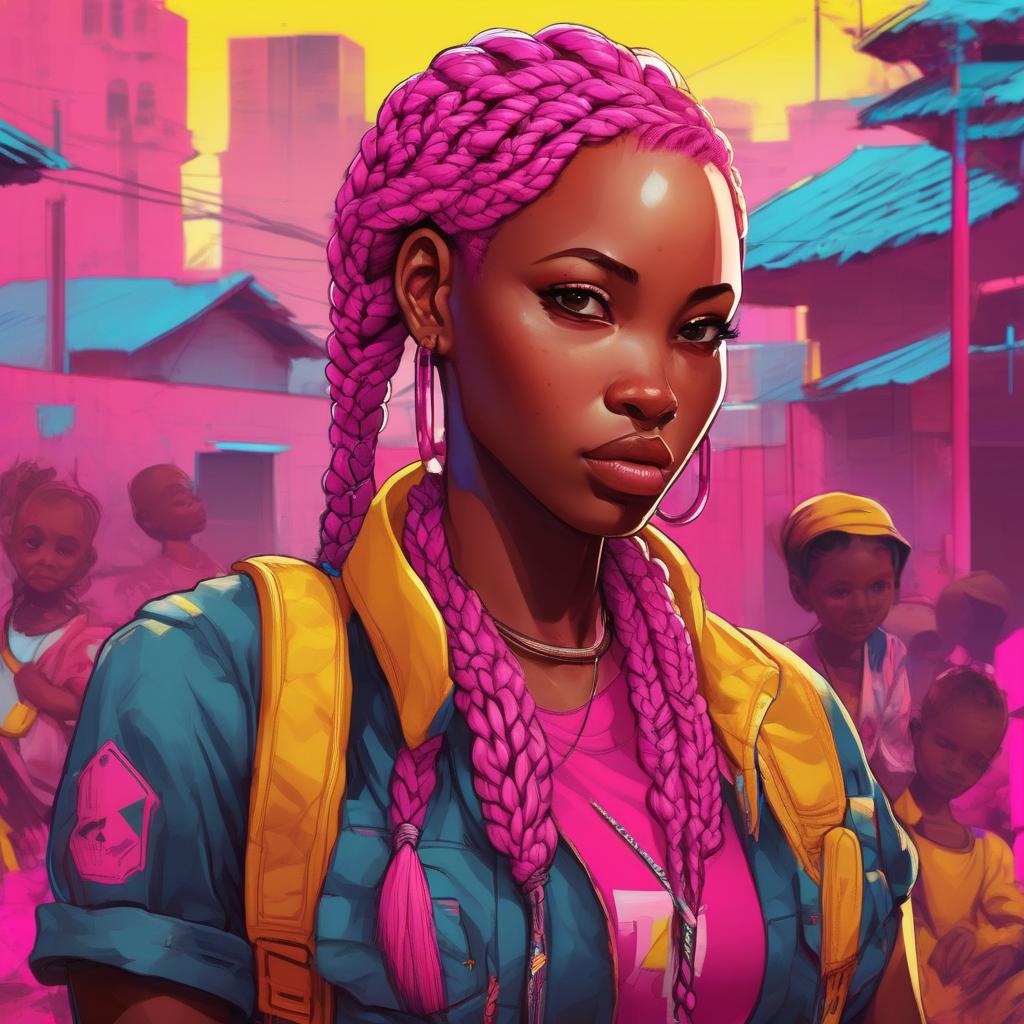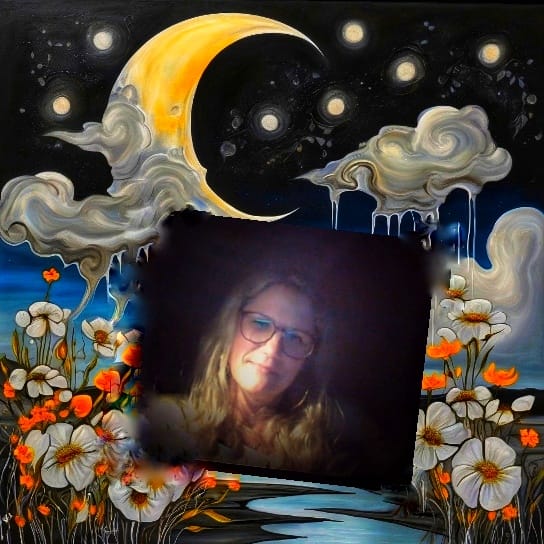Episode Transcript
[00:00:04] Speaker A: Hello there, fellow humans. Thanks for tuning in today. I'm Jaska Jost and this is interview with you today. Not yet with you today. With.
You know what? This time I will let her say it.
Natumanya Gillian Mercy
Gillian Mercy is a pretty impressive young woman. A real badass.
She is 20 years old and lives in Uganda, where, together with her brother, they take care of orphaned children. Gillian Mercy is really incredible in her determination to help and protect orphaned children. There is over 1.7 million of orphaned children in Uganda, according to UNicef.
And the situation is very complicated and rather hopeless. But against all odds, Gilian Mercy does all in her power to the maximum for those in her care.
Let's dive right in and see for yourself.
Let's go.
Hello and welcome to my podcast. Today I have a fantastic guest from a different continent. Welcome. Thanks very much for coming. Please tell us some more about yourself and about the work that you and your brother do in Uganda with the orphans.
[00:01:35] Speaker B: Yeah, my name is Natumanya Gillian Mercy. I'm from Uganda from orphanage. It's called Mercy's orphanage.
We help children from streets, vulnerable children, and then children have single parents infected with HIV and other chronic diseases.
Those children, those children who can't help themselves and provide, they can't provide best needs to themselves. And our main mission is to provide passionate love, education, and empower those children to have a quality and self sufficient future.
[00:02:17] Speaker A: Okay, and how are you doing it? You also provide them with education?
[00:02:22] Speaker B: Yeah, we provide them with education. We just connect with some local private schools around us. We make partnerships. They help us provide education to those children at some prices so that they become self sufficient adults.
[00:02:44] Speaker A: How many children do you have now at your orphanage?
[00:02:49] Speaker B: At my orphanage so far, I have 25. And then my brother has around 40 children, vulnerable children. He also helps orphans due to a large number. I try to get funds. He also tries to so that we can easily provide things to our children.
[00:03:08] Speaker A: Wow, that's a lot of children. And the age of them varies, right?
[00:03:14] Speaker B: They will take children from one year to 15 years old.
[00:03:20] Speaker A: How do they get into your orphanage?
[00:03:22] Speaker B: Most of them are street kids. In our country, we have many street children, so we get those kids from streets. Rubbish pits. Some people throw kids in rubbish pits, so we try getting them.
[00:03:39] Speaker A: Is there any help from the government for the orphanage or for the children in general?
[00:03:46] Speaker B: It's not really there. In our country, we suffer a lot. We suffer a lot to help those children. Yet sometimes even the government imposes taxes from us, yet we put a lot to help them.
So we find a lot of difficulties.
[00:04:04] Speaker A: So what are the biggest challenges that you face?
[00:04:08] Speaker B: The challenges, first of all, we face a challenge of food. We don't have food now. Like these days, we run out of funds. So we spend three days without getting what to eat. We just give the kids water. Yet we help those who really need medication. The tax, the government imposes heavy taxes from us. So those are the problems we find. You find like a day, we take one meal a day, a good day, we take two meals. Then a tough day, we just take one meal to take water. Because you don't have sufficient funds to find.
[00:04:48] Speaker A: So of course, the finances are the problem that you need.
That you need money in order to be able to provide food. Right? Because one meal per day is of course, not enough for anybody, let alone for children.
And so how do you get the money?
[00:05:08] Speaker B: Get money from donations, fundraising, through our, through our, through our websites. We get funding, donations to people. Some people get some people who help us. So most of the times, like right now, right now, we are in scarcity. We don't have any. We have insufficient funds. So our landlords are always on our necks asking for rent. Then we also earn our orphanage. We plant some maize. So when it grows, we dry it, we make maize flour, we sell it.
It provides both food and funds.
[00:05:52] Speaker A: How much money do you like would you need for a month in order to.
[00:05:57] Speaker B: So finance, to run for smooth running month? Like $10,000 for a month. Because we have sick children who are infected with HIV. So they need medication.
They need. We have even those ones who are lame, they need to go for therapy. We have, you know, many things which need really help. Our government doesn't care. It instead imposes taxation. Taxes on us, like it oppresses us, load. Yet there are many street kids in Uganda die due to hunger and diseases.
[00:06:37] Speaker A: Why is it that there are so many children on the streets.
[00:06:40] Speaker B: There are many reasons, like family break. If families break up, then some parents are irresponsible. They give birth when they are not ready. Instead of remaining with their kids, they decide to leave them on the streets, which really hurts us.
So we decide, we go the streets, get those kids, and even we get to help some parents who are, who are infected and have chronicle diseases. So I think that's why there are many street kids in Uganda. Even people are poor, they can't raise. So some people, they decide to leave their kids on streets. Instead of bringing them to a list orphanages to help them, they decide to leave them on streets due to insufficient funds. And I think some of them are even heartless.
[00:07:41] Speaker A: I read that in Uganda there is 5.6 children per mother.
[00:07:48] Speaker B: Yeah.
And yet they are poor. That's the worst part.
[00:07:54] Speaker A: You also mentioned that unfortunately some individuals were trying to take advantage of your brother's orphanage. And.
[00:08:06] Speaker B: Yeah, since like my brother is really.
My brother is really kind. Remember, he inspired me to start also my little orphanage. So some people used his kind heart. Heart to scam other people. And those people, they scam, they really. They lose faith. And they really lose hope and faith in us. They also think we are. So that's why they even sometimes fail to donate. Because they fell in hands of the wrong people.
[00:08:40] Speaker A: You will send me all the links that you want me to publish.
Is there anything else you want to talk about? Send a message.
[00:08:48] Speaker B: I would like to send a message to the viewers. Truly know that our country really need. Needs, help. We are really poor. Really. And we hope. We suffer a lot. We suffer a lot. Yet we have many people we help. So I'm requesting the viewers to help us to donate both physically, all the donations they can. It will really make much hope. And the kids, they really need hope. Because right now they are three days, yet they go to school, they are hungry. So from here I'll go to school, check on them or they are fine. Cause I also have to check those people who are sick. Because due to this hunger of now I have like three kids who are in the hospital, the hospitalized due to hunger. And the hospitals are also asking for funds. Yet we also don't have. So we really find a lot of difficulties.
[00:09:50] Speaker A: It sounds harsh.
Okay, thanks very much for coming.
[00:09:56] Speaker B: Yeah, so thank you for inviting me.
[00:10:00] Speaker A: We unfortunately kept experiencing persistent issues with connection, delay of the sound and echoes during the recording. We therefore decided to improvise a little. And Gillian Mercy recorded an extra footage for you. First a little message and then also a footage of the light in her orphanage. This footage will be at the end of the episode. And here is Gillian Mercy's message.
[00:10:25] Speaker C: Our orphanage operates through donations. Our orphanage provides shelter, meals, education and healthcare so that our children can become self sufficient adults. Uganda has many street children compared to other african countries because it faces challenges like poverty, conflicts, hiv, harsh cultures.
And according to unicef, over 2 million children are on streets in Uganda than other african countries. And this. And this is due to high fertility rates and limited social services. However, organizations like mine and my brothers are fighting hard to address these problems.
The above problems can be stopped and ended if we get possible solutions or sustainable solutions like education, economic empowering or families, supporting orphanages like ours and addressing the causes of poverty.
But our government has done nothing to support orphanages. But it is fit because adoption is an orange possible.
However, we focus on reuniting our children with extended family, their families, as our main goal is to create a forever family for our children. As it is said, education is the key to breaking poverty.
We partner with local schools, local schools which are private, to ensure that our children get quality education.
Our biggest challenges are hunger, limited funding, overcrowding, health and hygiene.
However, witnessing every child's growth and resilience makes every obstacle worthwhile.
We are grateful to supporters like you, Jaska, who amplify our voices.
Our children's knowledge and achievements are a testament to the power of compassion and community.
Thank you.
[00:12:57] Speaker A: This episode is really special to me, especially with connection to the ones that were dedicated to infertility treatments. I find it fascinating and worth some contemplation. I think how one person can be so desperate to be pregnant here while far away mothers are praying not to be pregnant and then leaving their kids in rubbish to die and both struggles are so real it's truly heartbreaking. In any case, thanks for watching and for your support. You will find the links to my socials in the description of the episode, as well as the links to Gillian Mercy's Instagram and her PayPal where you can contribute to her funding.
And now over to Uganda.
Let's experience the daily life in Gillian Mercy's orphanage.
If you're only listening, now would be the time to switch on the video.
[00:14:15] Speaker B: Kevin, bring the matchbox it the Poco Mujipako one cup another.
[00:18:10] Speaker C: It's do.
[00:19:01] Speaker A: So.
[00:19:06] Speaker B: Video.
Marika it.
[00:20:42] Speaker A: I don't know about you, but I am in awe over Gillian Mercy who at 20 years old dedicates her life to doing this.
Thank you very much.
And don't forget the next interview can be with.
 / ziribanda_children_ministry_ug
/ ziribanda_children_ministry_ug 


